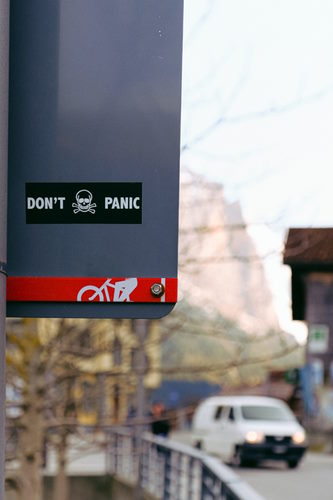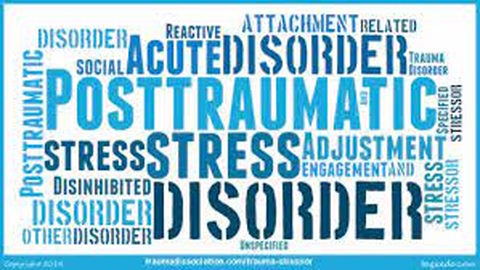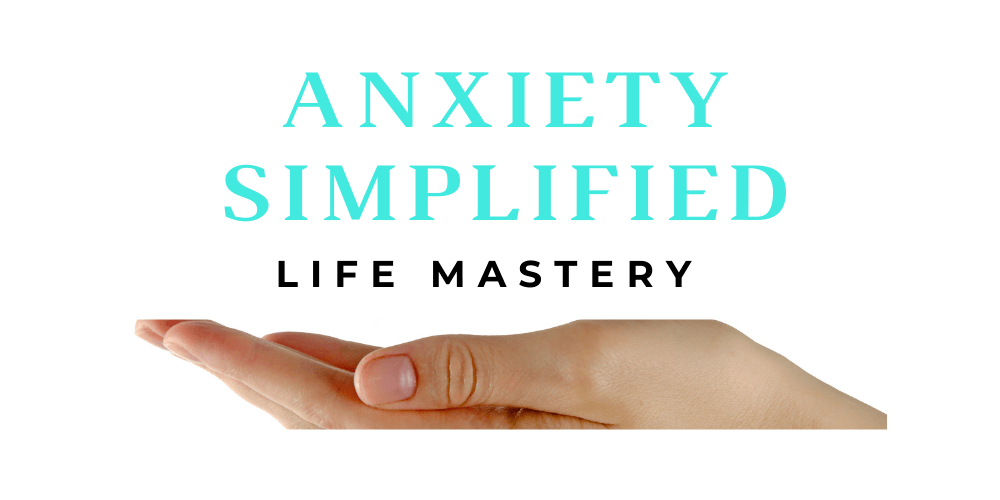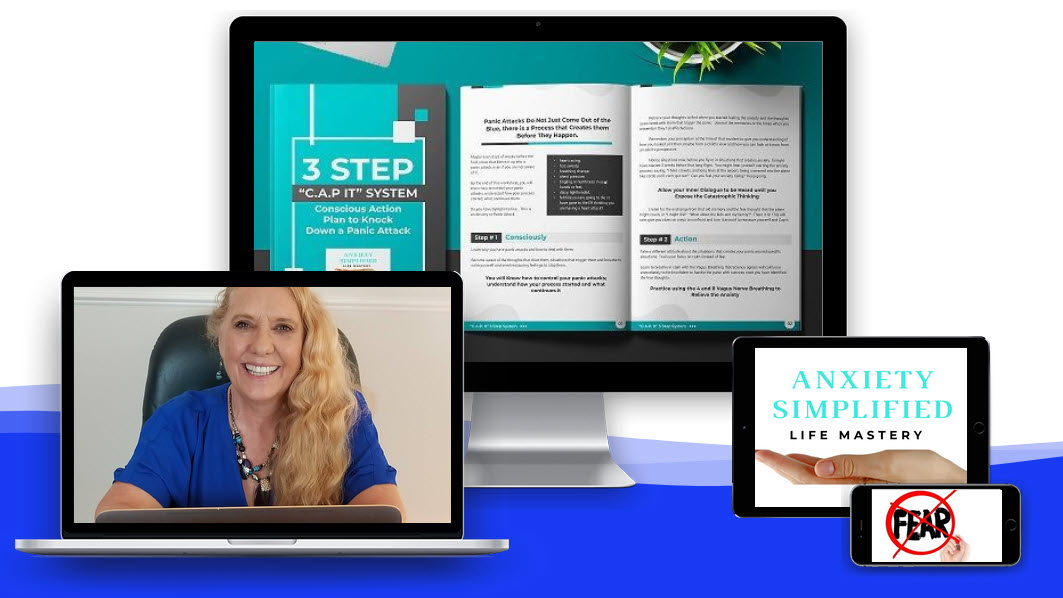It can be difficult to distinguish between asthma attack vs. panic attack because the symptoms are often similar. Both can induce chest tightness and shortness of breath, but the similarities stop there. Panic attacks can have a plethora of other symptoms you may be unaware of that are not seen in an asthma attack.
Knowing the distinction between an asthma attack vs. panic attacks critical in case it happens to you or to someone close to you and to know what to do and what to not do.

1
Asthma Attack Explained
Asthma is caused by the inflammation and restriction of your airways or bronchial tubes. Both inflammation and tightness can make breathing difficult. This results in symptoms such as wheezing, chest tightness, and coughing.
When you are experiencing an asthma episode, your bronchial tubes tighten even more, making it difficult to breathe. Wheezing may be heard. You may feel tightness or rumbling in your chest.
Your symptoms may last for several minutes, hours, or even days, depending on the intensity of your asthma attack. Bronchodilators (quick-relief drugs) help alleviate your symptoms and stop the attack. However, if your symptoms increase, you may require immediate medical assistance.
Asthma episodes are frequently triggered by irritants to the lungs. Among these triggers are pollen, animal dander, and dust mites and other similar allergens, cigarette smoke, perfume, and cleaning products, even exercise - particularly if it is more strenuous than you are used to, extreme cold or heat, anxiety and stress, Viral infections on the upper respiratory tract, and allergies to certain types of food.
2
Panic Attack Explained
A panic attack is a strong bout of anxiety that occurs unexpectedly.
Chest tightness and shortness of breath are common symptoms of a panic attack. This can feel like an asthma attack, or your mind can confuse them, thinking one might be the other.
However, unlike asthmatic coughing and wheezing, panic attacks can also cause other symptoms such as hyperventilation (taking short, quick breaths), lightheaded feeling or dizziness, feeling as if something is suffocating you, faintness, nausea, tingling in the hands and face, elevated heart rate, shivering or sweating, sentiments of estrangement from oneself and one's surroundings, having the impression that you are losing control, and fear of death.
After around 10 minutes, a panic episode will usually begin to fade. While a panic attack might happen during a period of intense anxiety and tension, similar symptoms can also come suddenly even when you are calm.

3
Asthma Attack vs. Panic attack: Quick Comparison
Panic and asthma attacks can both cause difficulty in breathing and a tight feeling in your chest. Because some of their symptoms are so similar, it can be difficult to tell the difference between an between an asthma attack vs. panic attack. However, these are two distinct illnesses that have independent management and treatment considerations.
Here's a rundown of their main differences:
Breathing Difficulties
- Asthma Attack - There is reduced oxygen intake due to chest constriction.
- Panic Attack - There is increased oxygen flow from shallow, rapid breathing.
Physical Symptoms
- Asthma Attack - Airway constriction and inflammation can cause coughing and wheezing.
- Panic Attack - Panic episodes don’t constrict the airways, but may trigger dizziness, muscle cramps, and rapid heart rate.
Psychological Impact
- Asthma Attack - It can immediately cause anxiety and stress over new attacks.
- Panic Attack - An attack can trigger a sudden, intense fear. It can also cause stress and anxiety between episodes. The fear of not catching your breath can make you think this might be an asthma attack and out of abundance of caution you might use your inhaler, thinking it might help you breath better. My experience with clients is that some asthma inhaler can make you feel jiggery and more anxious. Discovering the distinction between a panic attack and an asthma attack is very important to know the best treatment.
Triggers
- Asthma Attack - An asthma attack can be triggered by stress, exercise, allergens, and extreme temperatures.
- Panic Attack - A panic attack can be triggered by phobias, stress, medication side effects, chronic disorders, life changes, and external, stressors.
People diagnosed with either asthma or panic disorder may show more severe symptoms from asthma or panic attacks. Thus, the better you manage your condition, the less chances for you to experience and episode.

4
Managing Your Asthma
Proper asthma management can go long way in improving your airway function. In addition, this can lead to fewer episodes that can, in turn, lessen your stress about your overall condition.
You can reduce your anxiety, and help you be in better control of condition by establishing and sticking to an asthma action plan. The plan should include the following:
- ensuring that your medications are always easily accessible
- knowing the proper way to manage an acute attack
- recognizing when to call for emergency help during an episode.
Consult with your physician on amending your existing asthma treatment plan if:
- you experience more wheezing the entire day and through the night
- you are awakened from your sleep by of your symptoms
- You often experience chest toughness and frequent coughing, making it difficult for you to sleep.
- you find it difficult to exercise without wheezing
- you find yourself more dependent on your rescue inhaler, using it several times in a week.
A quick-relief medicine, such as a rescue inhaler, can often be used to treat an asthma attack. If your asthma attacks persist, you may require a stereoscopic inhaler or a leukotriene modulator to reduce airway inflammation.
If you have shortness of breath, you should seek emergency medical attention. Asthma episodes can be reduced by learning to manage and reduce stress.
5
Managing Your Panic Attack-Inducing Stress and Anxiety
Anxiety can lead to panic attacks if it builds up. If you suffer from frequent anxiety, you should consult a mental health professional. They can assist you in dealing with your anxiety and decreasing the likelihood of external stressors triggering a panic attack.
Stress is common even if you do not have an anxiety problem. However, stress can trigger your asthma, so it's critical to keep it under control.
- You can lessen your daily stress by doing the following:
- adding relaxation strategies into your daily routine, such as meditation and deep breathing exercises
- getting regular physical activity
- limiting alcohol and caffeine consumption
- obtaining adequate sleep
- creating time for socializing and participating in things that you enjoy outside of work and other obligations.
Final Word
While there are some parallels between between asthma attack vs. panic attack, the symptoms are distinct. It is possible to have anxiety and asthma at the same time, making it difficult to distinguish between the two.
If you get asthma or panic episodes on a regular basis, it could be due to a lack of effective therapy. Keeping track of your symptoms can assist your doctor in putting you on the proper treatment.
Feeling Calmer can help your physical health as well as your mental health.Stop Panic Attacks Now
This course is video based to be able to re listen to over and over again with a workbook to follow again or reuse you conquer one trigger you can see your progress to feel you can do this!
Click this link to take your first steps out of having panic attacks forever. Take a >Video 3 Step Course on how to Crush Panic Attacks with Joanne Williams, LCSW< Learn from a 30-year mental health professional. In this course, the 2nd step teaches the Vagus breathing, to get that immediate calming.
However, if your panic episodes become regular or interfere with your life, it is a good idea to seek professional care.
Contact Joanne Williams for a free 10-minute consultation on you best next step at 760-485-6784.
Disclaimer: This article is by no means a replacement for medical attention
- asthma attack vs. panic attack in players
- asthma attack vs. panic attack during sports
- asthma attack vs. panic attack at work
- asthma attack vs. panic attack in social settings

